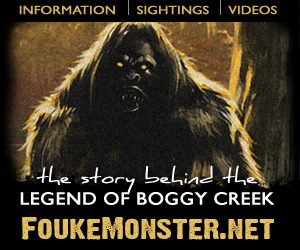Kenneth McConnell, 54, Leader of 1996 Yeti Expedition, Dies
Posted by: Loren Coleman on January 30th, 2006
Having survived near-death experiences in the Himalayas, including the near loss of a companion while they searched for the Yeti in 1996, a world-class climber dies close to home.
Scottish-born mountain climber Kenneth McConnell, 54, died, Saturday, January 28, 2006, when he fell from 4170 feet tall Mount Wellington, near Hobart in Tasmania. His father Kennedy said it was a tragedy because his son was climbing a “molehill” compared to Mt. Everest, which he had conquered, noting Kenneth had been to the Himalayas about 20 times.
Kenneth McConnell often was the medical adviser on leading international climbing expeditions in the Andes and the Himalayas, and was involved in over 30 expeditions in 30 years.
One of McConnell’s most exciting adventures was his search for the Yeti in 1996. The leader of the expedition, McConnell found evidence that convinced him to keep looking for Yetis. But his effort was cut short in 1996. He had to rescue his companion, Hobart psychiatrist Bob Burgess, who lived to survive a cerebral edema that occurred on their trek. Burgess was struck with the illness on a remote 5000 meter glacier on day 14 of the September 1996 Yeti expedition led by McConnell.
McConnell, nevertheless, did feel he had discovered encouraging proof of Yeti. According to Brisbane, Australia’s The Sunday Mail, 27 October 1996, Kenneth McConnell said that at Yalung La: “We found a cave in a very remote and inaccessible place next to a waterfall with straw on the floor. There were sticks but no tools or instruments that a human would use. Tundu, one of the team’s Sherpas, thought there was a high probability that this was the sort of cave that a Yeti would stay in.”
Two of the expedition’s Sherpas reported they had sighted Yetis, in 1996. Tunda said he had seen Yetis many times, as recently as a few months ago, and Perba recalled that he had seen a Yeti near Yalung, within the last year.
“It really is hard to doubt the stories of Tundu and Perba. I would trust them. They are not the sorts of people who would give you the answers you would want to hear,” McConnell said at the time. He vowed to return on another Yeti expedition, as the 1996 one was shortened by Burgess’ condition.
Tragically, McConnell will not be going back to the Himalayas. Last Saturday, McConnell, was climbing a distinctive cliff of dolerite rock columns on the mountain, known as the Organ Pipes, with a 45-year-old female doctor. He was abseiling (rappelling) when the rock he was tied to broke. He fell 60 feet and died before rescuers could reach him five hours later.
McConnell had also climbed in the Karakorum mountains in Pakistan and the Andes in South America. He moved to Tasmania when he was 20 and was in charge of the accident and emergency department at the Royal Hospital in Hobart, as a medical doctor.
Kenneth McConnell’s father, a widower, Kennedy, of West Ferry, Dundee, Scotland, lost his younger son Allan, 39, to cancer 12 years ago. He said: “I’m having great difficulty coming to terms with the loss of both my sons.”
McConnell was the father of two sons, Ian, 15, and Allan, 10.
(Sources are various media outlets, including The Scotsman, but one link to the story about Dr. Kenneth McConnell’s death here, please be forewarned, contains pop-up ads and site configurations that cause great interference with downloads.)
About Loren Coleman
Loren Coleman is one of the world’s leading cryptozoologists, some say “the” leading living cryptozoologist. Certainly, he is acknowledged as the current living American researcher and writer who has most popularized cryptozoology in the late 20th and early 21st centuries.
Starting his fieldwork and investigations in 1960, after traveling and trekking extensively in pursuit of cryptozoological mysteries, Coleman began writing to share his experiences in 1969. An honorary member of Ivan T. Sanderson’s Society for the Investigation of the Unexplained in the 1970s, Coleman has been bestowed with similar honorary memberships of the North Idaho College Cryptozoology Club in 1983, and in subsequent years, that of the British Columbia Scientific Cryptozoology Club, CryptoSafari International, and other international organizations. He was also a Life Member and Benefactor of the International Society of Cryptozoology (now-defunct).
Loren Coleman’s daily blog, as a member of the Cryptomundo Team, served as an ongoing avenue of communication for the ever-growing body of cryptozoo news from 2005 through 2013. He returned as an infrequent contributor beginning Halloween week of 2015.
Coleman is the founder in 2003, and current director of the International Cryptozoology Museum in Portland, Maine.










Tragic, very tragic, but at least he DID something with his life, and died doing what he loved best. I feel for his father.